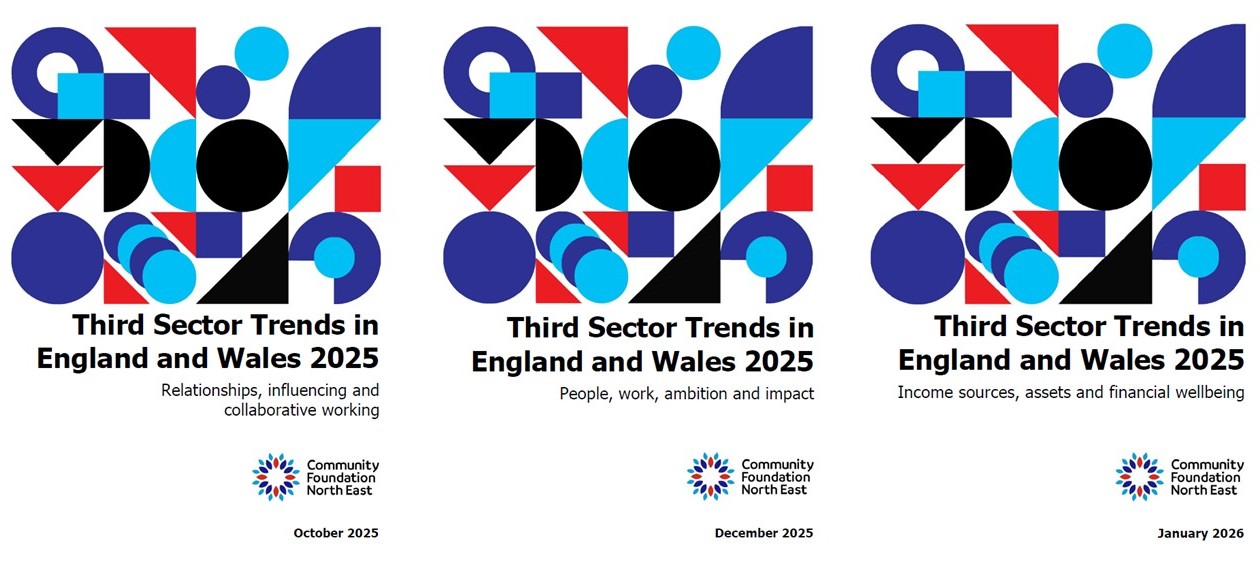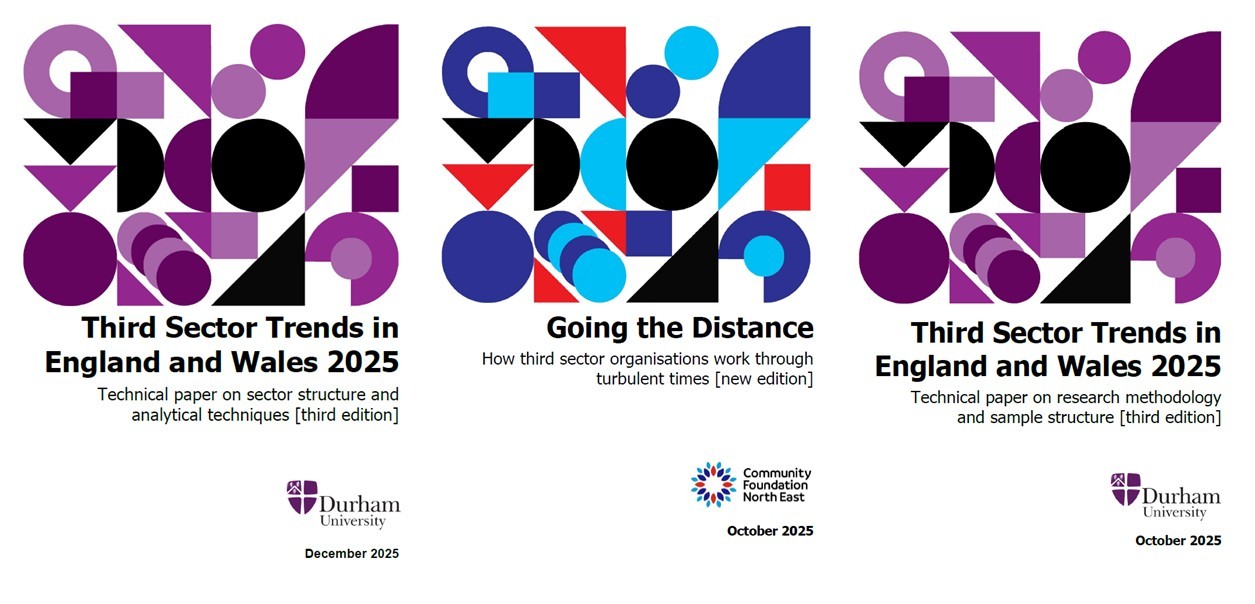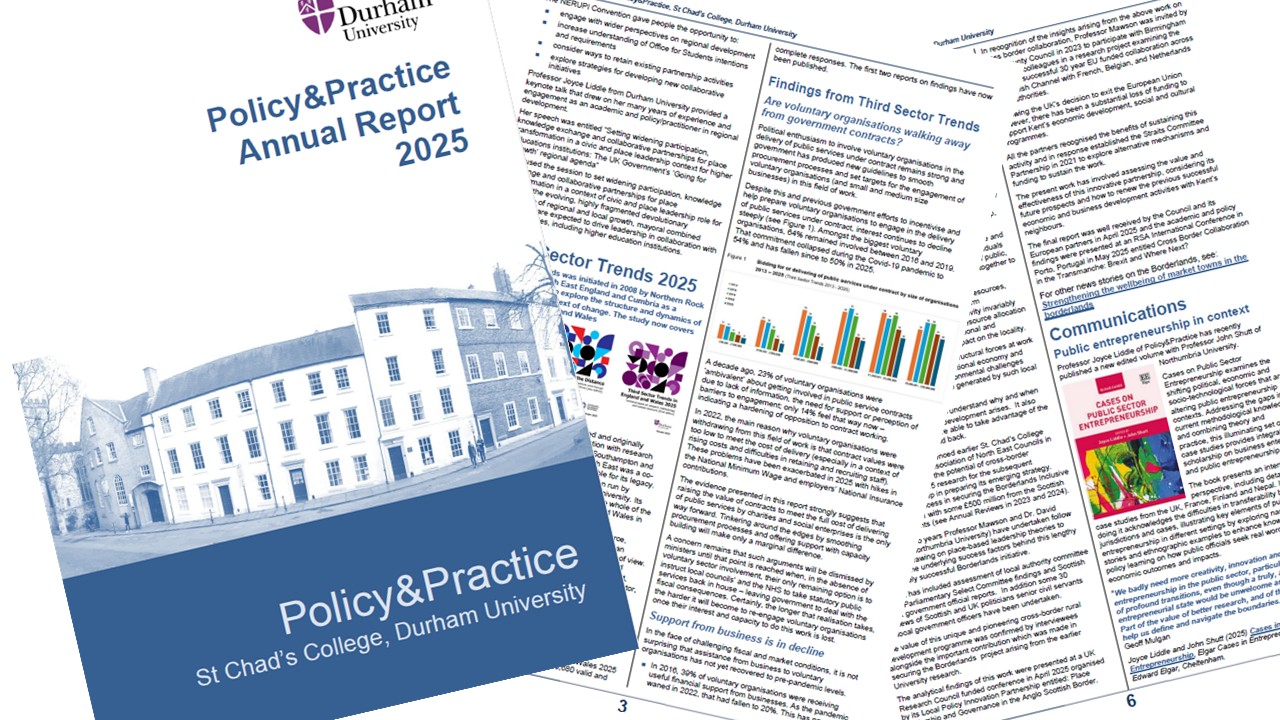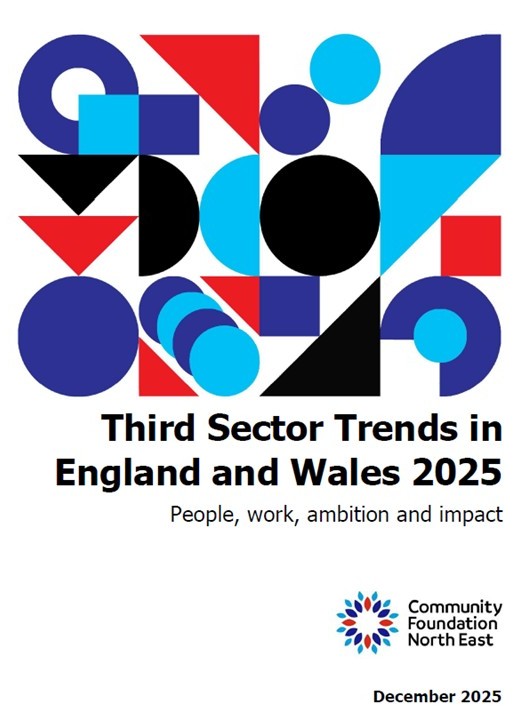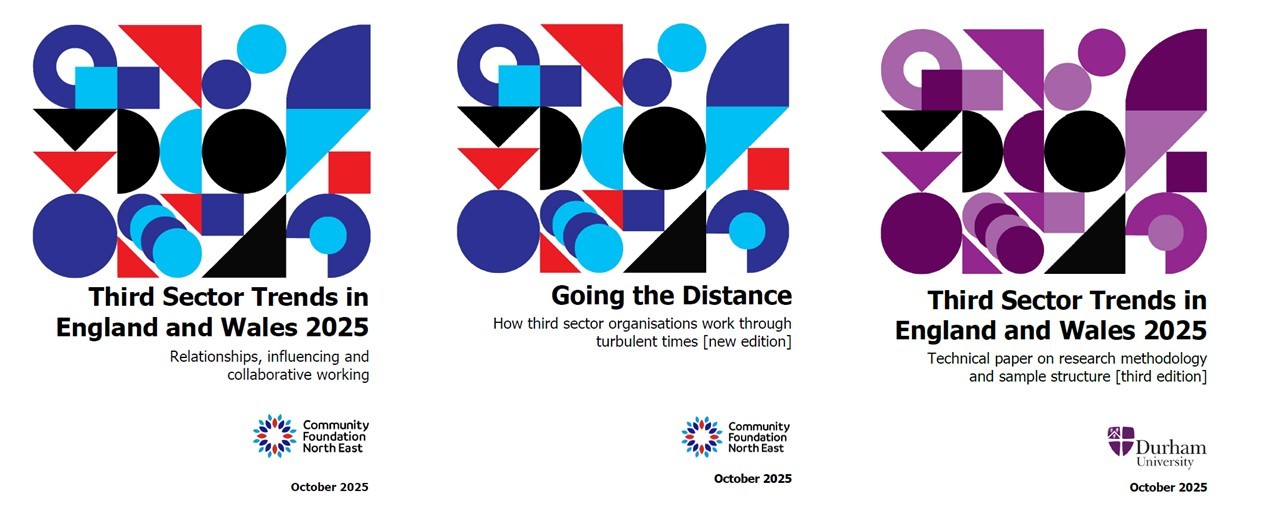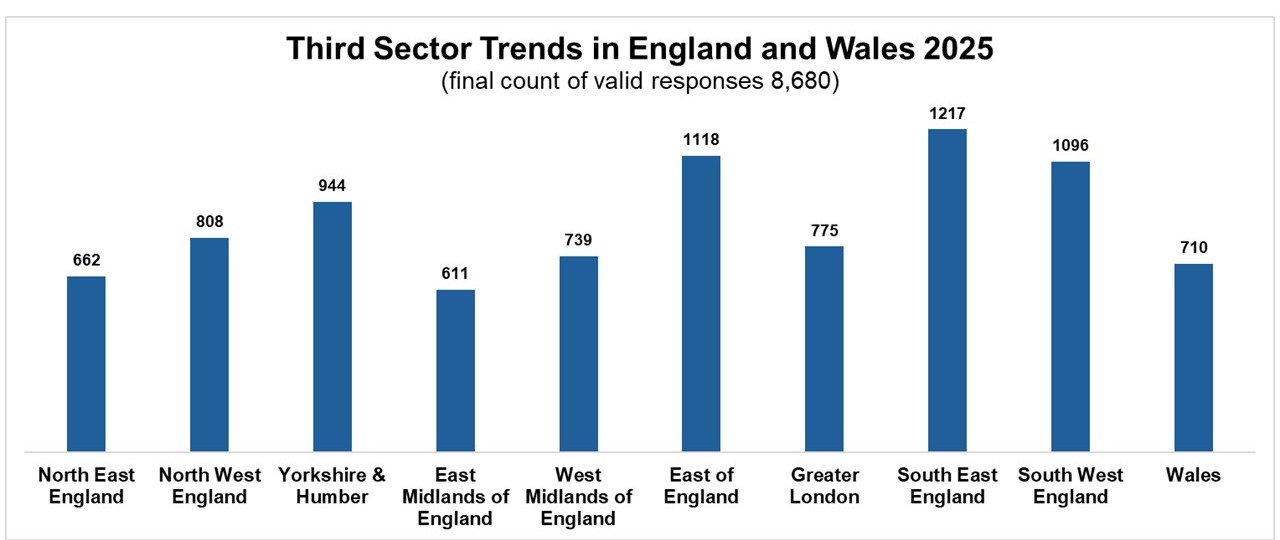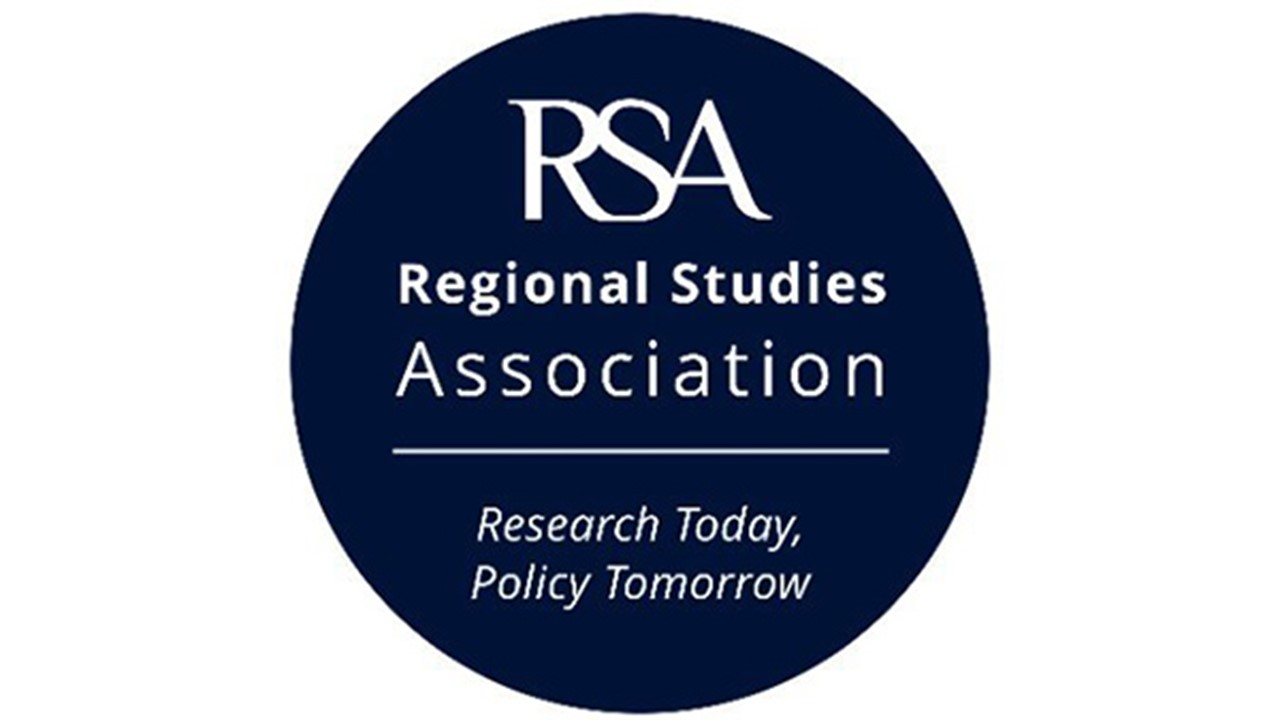Sector structure is shaped by local conditions
This fourth report in the series demonstrates that voluntary sector structure, capacity and interest in tackling issues is shaped primarily by local area characteristics. There is a higher concentration of third sector organisations (TSOs) per 1,000 members of the resident local population in more affluent regions such as South East England (3.6) than in less affluent regions such as North East England (2.6).
The balance between rich and poor areas varies across regions. In South East England, for example, only 6% of TSOs are located in the poorest areas (the least affluent quintile of the Indices of Multiple Deprivation), while 35% are located in the most affluent. In North East England, by contrast, 28% of TSOs are located in the least affluent quintile while only 15% are situated in the most affluent.
Within regions, the structure of the third sector is shaped by local social and economic conditions. In Middlesbrough, in the North East, for example, 65% of TSOs are located in areas of the deepest social deprivation compared with just 10% in Northumberland. At the other end of the spectrum, 27% of TSOs in Darlington are based in the wealthiest quintile compared with just 4% in Sunderland. These variations have a significant impact on how the local voluntary sector is structured, how it works and what it aims to achieve.
Volunteer support varies by region
In England and Wales, regular volunteers working with TSOs number around 4.3 million people who contribute 308 million hours of work valued at between £3.8bn and £5.6bn in 2025. In most regions, there has been a decline in regular volunteers since the pandemic. In North East England, the number of regular volunteers has fallen from 163,900 in 2022 to 148,900 in 2025; the hours worked has decreased from 11.6m in 2022 to 10.7m in 2025.
Reliance on regular volunteers is even higher in more affluent regions. Expectations that TSOs can rely on volunteers on a very regular basis (81%) or for them to work unsupervised (71%) is substantially lower in the North East than in the South East (87% and 80% respectively). Similarly, fewer TSOs in the North East state that they could not keep going without volunteers (82%) than in the South East (91%).
As there are more deprived areas in North East England, that explains why a higher percentage of TSOs report that many of their service users are beneficiaries (74%) compared with just 63% in South East England. In all regions, a substantial proportion of TSOs state that they have yet to recover to pre-pandemic levels of volunteering (~38%). North West England stands out as an area which is struggling particularly (44%).
Beneficiaries served and social impact
In poorer regions such as North East England, there is a much stronger focus on aspects of pernicious and critical social need than in more affluent regions. For example, 32% of TSOs in the North East believe that they have a very strong impact on health and wellbeing compared with a national average of 25%. Similarly high scores are recorded for tackling social isolation (38%) and building people’s confidence to manage their lives (27%).
In other respects, the impact of the North East England’s third sector is little different from other areas. For example, about the same percentage of TSOs feel that they have a very strong impact on the environment or the cultural and artistic life of the community as in other regions.
In some aspects of beneficiary support, other regions stand out. For example, homelessness is featured as a bigger priority in Greater London than in any other region, while emphasis on rural issues is higher in the less urban regions of East Midlands, South West, East of England and Wales. The focus on overseas aid and international development is the lowest in North East England (2% of TSOs) compared with much higher levels of support in Greater London (8%) and the South East (6%).
A potential intensification of competition for grants
While local conditions undoubtedly shape sector purpose, structure, wellbeing and impact, other factors frame TSOs’ prospects such as national-level political decision making. Often the impact can be direct – when, for example, government shifts policy direction and invests heavily in one aspect of social life to the detriment of others.
Government decisions also affect how local public sector agencies are funded, such as the NHS or local authorities, which can have a profound impact on third sector activity. One such challenge, highlighted in this report, is the government’s squeeze on public finances which has had the effect of lowering the value of contracts offered to TSOs to deliver public services. If the present government fails substantially to raise levels of funding to the NHS and local councils so as to facilitate an increase in contract values this will result in even more TSOs withdrawing from this field of work.
It is highly unlikely that leaders of big TSOs which give up on contracts will decide dramatically to reduce the size of their operations, make service-delivery staff and managers redundant and consolidate activity in existing areas of work which are financed by other means.
A much more plausible response is that big TSOs will look for alternative ways of sustaining their activity. Indeed, leaders in 94% of TSOs which were delivering contracts in 2025 stated that they intended to bid for funding ‘to deliver something brand new’ (compared with 68% of leaders in organisations which have no intention of delivering public services).
Leaders were also asked how they ‘felt’ about bidding for funding to do something brand new: 18% were ‘excited’ about this (that this is ‘what get’s them up in the morning’) and another 40% were ‘quite excited’. Admittedly, some leaders were worried about bidding to do something brand new (22%) – but that was not going to stop them from trying.
As more of those organisations which delivered contracts operate mainly in poorer areas, there will be limited scope to develop self-generated trading activity to bridge the gap in their finances. Consequently, most will probably turn to trusts and foundations for substantial grant funding.
As report author, Professor Tony Chapman, St Chad’s College, Durham University concluded:
“Delivering public services is a minority sport in the voluntary sector. But if those organisations which currently do contract work withdraw from the field, given their size and financial clout, it will have profound consequences for the rest of the sector. Middling-sized charities will be especially at risk as they witness intensified competition for grants from trusts and foundations.”
Increased competition for grants could ensue and seriously upset the current equilibrium in funding opportunities, especially for middling-sized TSOs in a marketplace with finite resources. But the extent to which that happens may vary by region because the decline in the number of organisations delivering contracts varies.
At present in the North East of England, for example, many TSOs are holding fast and remain involved in public service delivery. In other regions, such as North West England and Yorkshire and Humber, there are worrying signs of an exodus from this field. And again, by contrast, in South East England, East of England and London (though admittedly from a lower base), more TSOs are bidding for, or delivering contracts.
As Rob Williamson, CEO of Community Foundation North East said:
“This report confirms what we know – that small and medium sized charities and community organisations are the bedrock of meeting need in disadvantaged communities but can also be the most vulnerable. Providing financial support for these organisations, especially longer-term and unrestricted funding, is critical, and philanthropy, facilitated through the work of organisations like Community Foundation North East, is a vital part of supporting those small and medium organisations often overlooked by government policy and commissioners.”
About the study
Third Sector Trends has been surveying the voluntary, community and social enterprise sector every three years since 2010. In 2025, 8,680 responses were received across England and Wales. This is the only large-scale and fully representative longitudinal national survey in the UK which can produce robust and detailed comparative analysis at regional and national level.
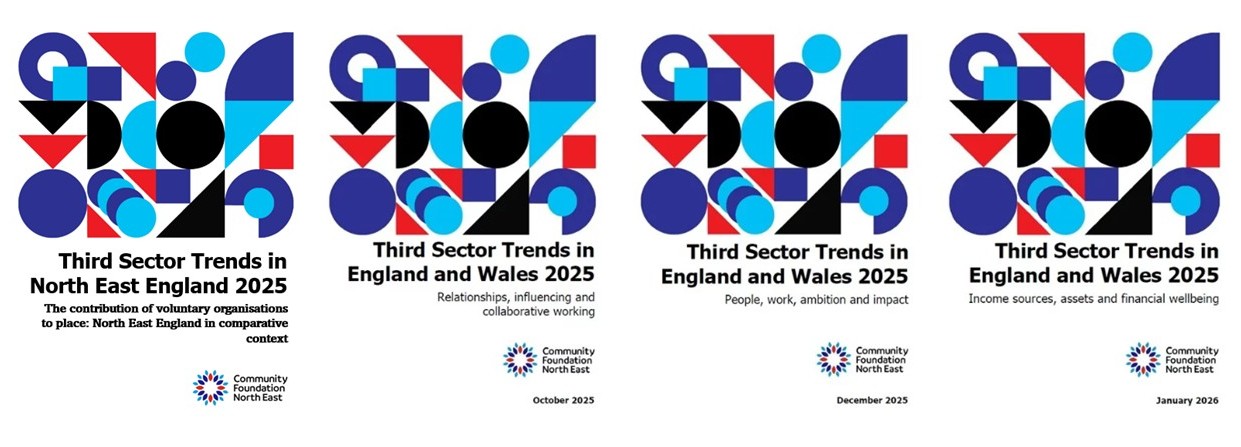
The project is funded in 2025-26 by Community Foundation North East, Lloyds Bank Foundation England and Wales, Wales Council for Voluntary Action and Millfield House Foundation. This is the fourth of five national reports from Third Sector Trends in England and Wales 2025. This is the fourth national report in the series.
The report was published on 12th February 2026: Third Sector Trends in England and Wales: The contribution of voluntary organisations to place.
All other reports in this series can be located here: Third Sector Trends Publication Archive.
And will also be available on the website of the Community Foundation North East: Third Sector Trends
The report was covered in Charity Times, Third Sector and Civil Society news stories.


